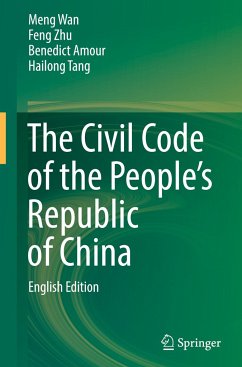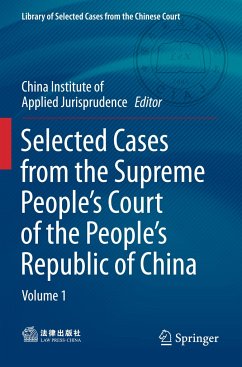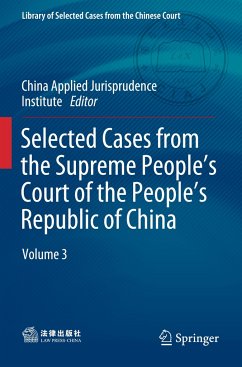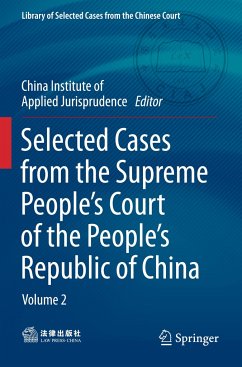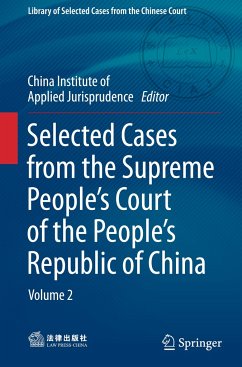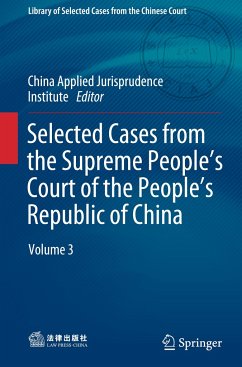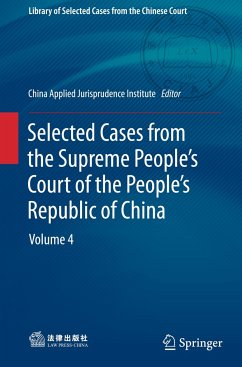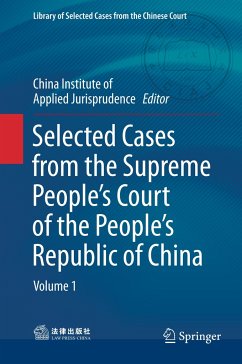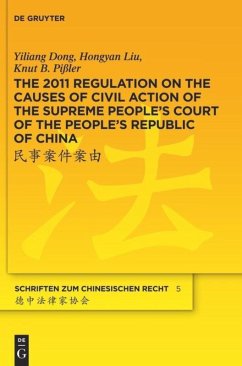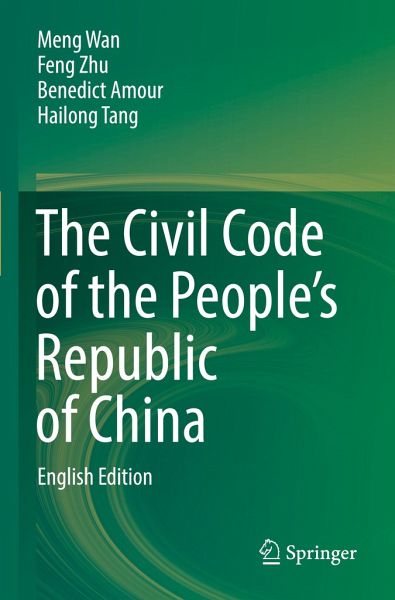
The Civil Code of the People's Republic of China
English Translation
Versandkostenfrei!
Versandfertig in 6-10 Tagen
113,99 €
inkl. MwSt.
Weitere Ausgaben:

PAYBACK Punkte
57 °P sammeln!
This book consists of 7 parts and 1,260 articles, each part in turn being the General Provisions, Real Rights, Contracts, Personal and Personality Rights, Marriage and Family, Succession, Tort Liability, and the By-laws, which came into force on January 1, 2021. The codification of the Civil Code is a comprehensive and systematic compilation and revision of the existing civil legal norms of China, which were formulated in different periods of time. The Civil Code of the People's Republic of China is recognized as a declaration and guarantee of civil rights in China. This book is characterized ...
This book consists of 7 parts and 1,260 articles, each part in turn being the General Provisions, Real Rights, Contracts, Personal and Personality Rights, Marriage and Family, Succession, Tort Liability, and the By-laws, which came into force on January 1, 2021. The codification of the Civil Code is a comprehensive and systematic compilation and revision of the existing civil legal norms of China, which were formulated in different periods of time. The Civil Code of the People's Republic of China is recognized as a declaration and guarantee of civil rights in China. This book is characterized by the addition of article-by-article purpose on the basis of legal articles, systematically indicating the main content of each article, so that readers can easily and clearly understand the content of the articles.





